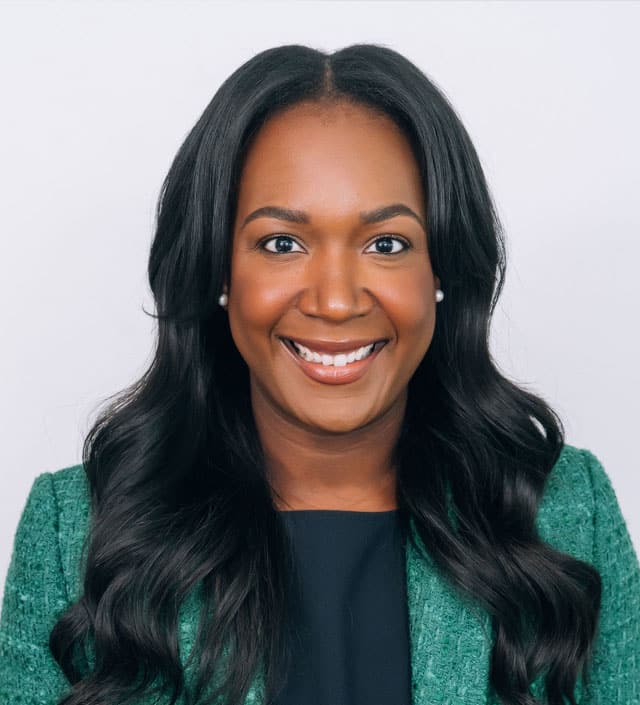Editor’s note: Beth Walker is a wealth advisor with Carson Wealth and founder of Center for College Solutions, based in Colorado Springs, Colo. She is also the author of two books on college planning, “Never Pay Retail for College” and “Buying College Better,” and a columnist for Rethinking65. Read her latest article here.
Jerilyn Klein: Are you bringing up political educational developments with clients (cuts to higher education, etc.), or do you only discuss these issues if they mention it? Do you have suggestions on how to hold these conversations without getting political?
Beth V. Walker: This is definitely coming up and I do think being proactive is merited due to the uncertainty. My messaging is along the lines of, “As we transition from the perspective of government funding to private funding, it’s messy. There are many instances that probably require a scalpel, but blunt instruments are being used to create the desired outcome so it’s painful and confusing. That said, the basic approach to getting into college and paying for it is more similar than different. Know what you can actually afford, and find schools that meet your student’s academic and social needs and your financial resources. No need to overspend in this area.”
Klein: Do you expect the political developments to impact college choices for the 2025-26 year, and going forward?
Walker: I do. Because I’m in the middle of the country, parents ask me to help them find colleges that are more moderate — both in culture and cost. The confusion of the last several years regarding student loans and the FAFSA has not helped higher education in terms of comfort, confidence, or trust. Families are more skeptical — which I view as a positive. This is awakening the consumer mindset that’s been missing for three decades as it relates to buying college.
Klein: Have colleges taken longer this year to offer admission and financial aid packages as they sort out the new policies and possible funding cuts?
Walker: The short answer is yes. Academia is not known for embracing rapid change and all the accepted ways of doing things has been upended — much of that is still in theory vs. practice, but colleges are trying to prepare for what is viewed as inevitable. The rate of change is breathtaking from their perspective. The elite institutions will not feel the effects of this to the extent that all other colleges will so they are the least likely to skip a beat. The smaller, private schools that don’t have strong endowments are at risk unless they can adapt.
Additional Reading: Colleges Yank Back Admissions Offers to Graduate Students
Klein: Do you have any client families who are being impacted financially and emotionally by the new student loan policies? Are families worried about the possible end of income-driven repayment plans and public service loan forgiveness?
Walker: This has been nothing short of a disaster since the pandemic and the “on again, off again” treatment of student loan forgiveness and student loan repayment. It’s a mess and the rules are still unclear. The loan servicing companies are understaffed, ill-informed, and unhelpful. Students and parents are exhausted by the whole topic and left to navigate this terrain with limit knowledge, information or guidance.
One of my clients paid off her son’s loan entirely, although they had agreed he would pay it off, because she couldn’t get a clear answer on what he needed to do to set up his repayments. It was worth it to her to pay the lump sum just to make the pain go away. The son should have qualified for an income-driven repayment plan, which meant he wouldn’t have had to pay anything until his income increased substantially, but the mom couldn’t take the endless hours on hold, getting different answers each time they called.
This, unfortunately, supports the narrative that taxpayer dollars are being wasted and abused. The pain is real and the answer isn’t simple, so it will continue for the foreseeable future.
Klein: How do you plan for these unknowns, including potential policy changes?
Walker: You focus on the things you can control. Again, the circumstance we find ourselves in supports my hypothesis that we need to “buy college better.” When the only financing a family uses is the direct student loan for undergraduate degrees, they don’t get entangled in these complexities. Minimizing the role government lending plays in the overall payment strategy for college simplifies EVERYTHING (where to apply, which offer to accept, how to pay for it).
Klein: Are clients’ children reconsidering majoring in political science and the sciences, for undergrad and/or grad school?
Walker: The students are not as influenced by this turmoil. Anyone with teenagers knows they tend to be inwardly focused and influenced by their peers more than their parents. I am not seeing this seep into the choice of majors at this point but I don’t work directly with students like independent educational consultants do.
Klein: Do you know people who’ve lost their federal jobs or had federal job or internship offers rescinded?
Walker: I do. I know individuals that signed up for the 8-month severance agreement and I know folks that are still waiting to hear if they will lose their job.
My background in corporate America exposed me to the realities of layoffs and downsizing so I’m more familiar with the realities of workplace “rightsizing.” The idea of reducing the size of the federal government — its employees, its redundancies, its unnecessary spending — has been around since the Reagan administration so the concept is not new.
What’s been so jarring is the fact that people walked in and started actually doing it … and not with HR approved language or nuances but with a sledgehammer. It may or may not deliver the results the electorate voted for; we won’t know until we get there and the only certainty is uncertainty.
Focus on was hasn’t changed and control what you can control.
Jerilyn Klein is editorial director of Rethinking65.







